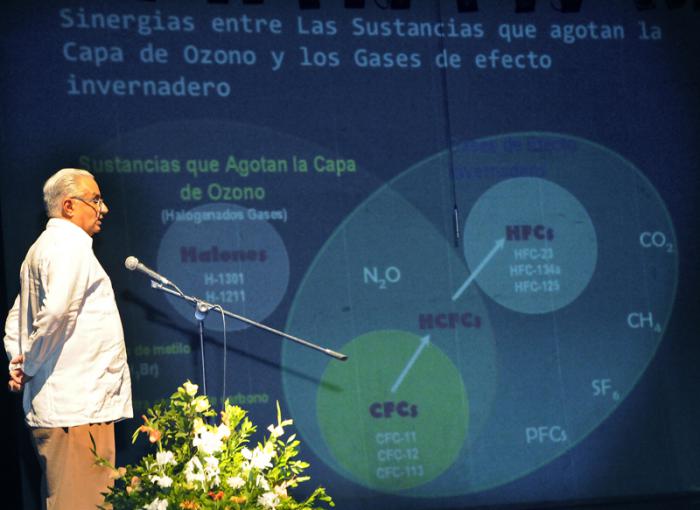The head of the Ozone Technical Office of Cuba, Nelson Espinosa, pointed out that the country has the productive capacity to dispense with the use of hydrofluorocarbon refrigerant gases.
Only in 2021 121.33 tons of hydrochlorofluorocarbon HCFC-141b gases, with a high global caloric potential, were phased out, “an evidence of the country’s environmental vocation and the exclusion of ozone-depleting substances,” he said in an interview with the Cuban News Agency.
Said action, he stressed, is part of the National Plan for the Elimination of HCFC in the refrigeration sector, medicine packaging and other applications, with a view to the suppression of the R-141b refrigerant gas, in addition to the production of rigid polyurethane foams, elements that destroy the ozone layer.
Espinosa pointed out that they carried out experiments to eliminate these substances in a number of entities dealing with refrigeration units.
The Automotive Development Center and the Household Appliances Industrial Company of the province of Villa Clara also worked towards this goal.
Cuba is a signatory of the Vienna Convention for the Protection of the Ozone Layer (1985) and the Montreal Protocol (1987), related to the control and gradual elimination of the production and consumption of industrial chemicals.
pgh/llp/gas/cdg









